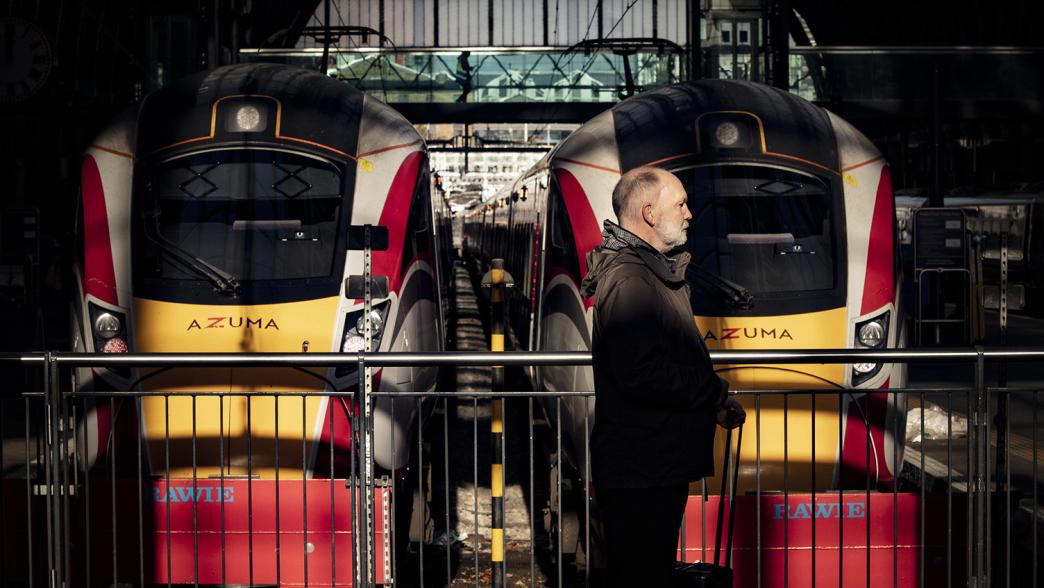Rail strikes are still the government’s problem
The government cannot credibly refuse to take part in negotiations

The rail unions are right to say that ministers have a necessary part to play in the latest rail dispute, says Matthew Gill
Rail strikes on 21, 23 and 25 June, across much of the rail network, received overwhelming support from members of the Rail, Maritime and Transport union (RMT). 31 RMT, ‘RMT declares overwhelming mandate for national strike action on railways’, press release, 24 May 2022, www.rmt.org.uk/news/rmt-declares-overwhelming-mandate-for-national-strike-action-on/ They may be the first of many this summer.
With the Bank of England expecting CPI inflation to reach 11% this year, 32 Bank of England, ‘How high will inflation go?’, Bank of England, 17 June 2022, www.bankofengland.co.uk/knowledgebank/will-inflation-in-the-uk-keep-rising the RMT says it is seeking a lower pay rise of 7.1% for its members (although based on an RPI inflation measure for 2021 which is likely to increase beyond CPI this year). 33 Sky news, ‘Sophy Ridge on Sunday: Grant Shapps and Mick Lynch’, podcast, 19 June 2022, https://news.sky.com/story/sophy-ridge-on-sunday-grant-shapps-and-mick-lynch-12636682 (27 minutes in) That 7.1% contrasts with the 3% maximum the civil service is receiving 34 Cabinet Office, Civil Service Pay Remit guidance, 2022 to 2023, Gov.uk, 31 March 2022, www.gov.uk/government/publications/civil-service-pay-remit-guidance-2022-to-2023/civil-service-pay-remit-guidance-2022-to-2023 as well as the 4.8% average earnings growth in the private sector. 35 Bank of England, Minutes of the Monetary Policy Committee meeting ending on 15 June 2022, Bank of England, 16 June 2022, www.bankofengland.co.uk/monetary-policy-summary-and-minutes/2022/june-2022, paragraph 31
The government cannot credibly refuse to take part in negotiations
The government wants the rail unions to negotiate with their striking members’ employers (Network Rail, London Underground and train operating companies such as CrossCountry and LNER), rather than with civil servants or ministers. This is a difficult line to hold: rail is a natural monopoly and a public utility which has received £16bn of subsidy during the pandemic precisely because the government thought it an essential service to preserve. Since privatisation, the government has remained intimately involved in determining fares, service levels and industry structures; timetabling and ticketing changes frequently end up on ministers’ desks.
By commenting on the strike, the government has made it even harder to claim it has no part in the dispute. Transport secretary Grant Shapps, writing in the Sun, has said that ‘some of the RMT leadership live in another world – a Jurassic one largely populated by dinosaurs’, before commenting in detail on negotiations of pay and working practices. 36 Shapps G, ‘Rail union’s dinosaur ways of working should be consigned to the museum of industrial relations’, The Sun, 15 June 2022, www.thesun.co.uk/news/18901899/rail-unions-dinosaurs-working-strikes/ For this reason, RMT boss Mick Lynch has argued that the rail operators are unable to negotiate with him meaningfully: “In effect, in recent weeks, the union has been negotiating with the government but the government have not been in the room.” 37 RMT, ‘RMT calls for face to face meeting with Shapps’, press release, 15 June 2022, www.rmt.org.uk/news/rmt-calls-for-face-to-face-meeting-with-shapps
Shapps should indeed acknowledge that the government has a part to play. The Labour opposition, in turn, has made a mess of the same point, dodging the inescapable fact that the government – and therefore any prospective government – must express a view.
The government’s voice is essential because the dispute is not isolated
The government has several interconnected aims. One is to protect the rights of the travelling public and the provision of this essential service; without that, business, health, education and ordinary life are disrupted. It also wants to pursue reform of the railways to try to secure an economically viable future for them. More widely, it is trying to hold down pay across the economy in a year of spiking inflation which may persist beyond this year – but might not.
All options in this dispute are expensive and controversial, at least in the short term. The government is therefore looking to expand its options in future disputes. It has three levers to hand:
- The government plans to repeal legislation that prevents transferrable workers – including agency workers – from covering for strikers. 38 Waugh P, ‘Train strike chaos set to continue because ministers won’t allow rail firms to negotiate pay with RMT union’, i, 17 June 2022, https://inews.co.uk/news/politics/train-strike-chaos-continue-ministers-rail-firms-rmt-1693370 But transferrable workers cannot do work for which they are untrained.
- The right to strike on the railways could be made contingent on a minimum level of service and/or staffing being agreed by unions in advance, although again this would be likely only to protect a skeleton service. 39 Speare-Cole R, ‘Government considers plans for minimum staffing requirement during rail strikes’, Independent, 22 May 2022, www.independent.co.uk/business/government-considers-plans-for-minimum-staffing-requirement-during-rail-strikes-b2084484.html
- Great British Railways – a new public body announced last year – will be tasked with realising some aspects of government’s ambition to modernise employment and working practices in the industry. 40 Department for Transport, Great British Railways: The Williams-Shapps Plan for Rail, CP 423, The Stationery Office, May 2021, www.gov.uk/government/publications/great-british-railways-williams-shapps-plan-for-rail, pp. 96-97
These levers may prove effective. But at least the first two, and perhaps the third as well, imply a confrontational relationship with the labour movement. That will not help the government to navigate pay settlements across the public sector in this exceptionally difficult period.
No-one says this is easy. The government has a strong case for reform. But it will advance nothing, not a timely resolution of this dispute, the interests of the public and businesses or the future of the railways, by suggesting that it has no role to play. On that point at least, the rail unions are right: the government has an essential voice in this negotiation.
- Supporting document
- great-british-railways.pdf (PDF, 177.09 KB)
- Topic
- Public bodies
- Keywords
- Transport Arm's-length bodies
- Department
- Department for Transport
- Public figures
- Grant Shapps
- Publisher
- Institute for Government